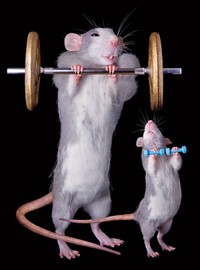Advertisement
Grab your lab coat. Let's get started
Welcome!
Welcome!
Create an account below to get 6 C&EN articles per month, receive newsletters and more - all free.
It seems this is your first time logging in online. Please enter the following information to continue.
As an ACS member you automatically get access to this site. All we need is few more details to create your reading experience.
Not you? Sign in with a different account.
Not you? Sign in with a different account.
ERROR 1
ERROR 1
ERROR 2
ERROR 2
ERROR 2
ERROR 2
ERROR 2
Password and Confirm password must match.
If you have an ACS member number, please enter it here so we can link this account to your membership. (optional)
ERROR 2
ACS values your privacy. By submitting your information, you are gaining access to C&EN and subscribing to our weekly newsletter. We use the information you provide to make your reading experience better, and we will never sell your data to third party members.
Chemical Communication
Newscripts
Sweet-smelling study aids, and why stinky plastic is a trap for turtles
by Laura Howes
April 25, 2020
| A version of this story appeared in
Volume 98, Issue 16
The sweet smell of school success

Have you ever caught a familiar smell and been overcome by a memory of a time past? In À la recherche du temps perdu, or In Search of Lost Time, Marcel Proust’s narrator famously finds himself whisked back to his childhood after eating a small cake called a madeleine. More recently, Franziska Neumann found that the smell of her olive face cream brought back memories of her mother wearing the same cream. As a trainee school teacher at the University of Freiburg, that got her thinking about the links between smell and memory and whether that connection could help students recall their lessons.
To test her hypothesis, she enlisted students learning English vocabulary. Some used their usual study methods, but others were given a rose-scented incense stick to put by their books while they learned. Of those, some students brought out the incense again when they did a test, others put the incense sticks by their beds when they slept, and a third group used the incense while they studied, slept, and took the exam. The test results showed that combining smell with study and sleep improved the students’ grades, suggesting that the scent helped transfer what they’d learned from short-term memory to long-term memory. Using scent during study, sleep, and the exam boosted scores even more.
Neumann, who wants to teach biology and English, wrote up the results as part of her training. Then she asked Jürgen Kornmeier to look over her results, and the pair have published their findings (Sci. Rep. 2020, DOI: 10.1038/s41598-020-57613-7). Neumann’s work is the latest piece of a puzzle looking at how scents can help in memory storage, Kornmeier tells Newscripts. But crucially, he says, it works in real life, not just in the lab.
You still have to study, the pair say, but using odor the way the students did may help you. Interestingly, Neumann says you don’t need to light the incense sticks, because unlit sticks smell strongly enough. In fact, she says, the first set of incense she bought was deemed too intense by the students she was working with. She had to buy a second, less intense brand of incense for the study.
A sulfurous stink in the deep

One smell that the Newscripts gang does not enjoy is that made by bacteria on marine rubbish. If you’ve ever pulled out stinking plastic when at the beach, you know the smell. But what is repulsive for humans turns out to be something turtles are into, and it’s upending some of the scientific dogma about turtles’ desire to eat plastic.
There’s growing evidence that the smells from bacteria growing on ocean plastic might attract sea life in search of food. So a team led by Joseph B. Pfaller at the University of Florida decided to see if eau de biofouled plastic is attractive to turtles. The researchers held their noses and took some stinking ocean plastic into the lab. They then piped the smell above a tank with loggerhead turtles and watched them stick their noses out of the water for a sniff.
When the team piped in the stinky smell, the turtles stuck their noses out of the water for about three or four times as long as when control smells were piped in (Curr. Biol.2020, DOI: 10.1016/j.cub.2020.01.071).
“We’ve had this long-standing hypothesis that turtles eat plastics because it looks like food,” Pfaller tells Newscripts. But maybe plastics don’t look like food but smell like it instead. It’s not madeleines or rose incense, but Pfaller says it’s an evolutionary adaptation for organisms living in the open ocean to be able to use smell, not vision, to find food. “And in this case, it’s turned into a trap.”
Laura Howes wrote this week’s column. Please send comments and suggestions to newscripts@acs.org.





Join the conversation
Contact the reporter
Submit a Letter to the Editor for publication
Engage with us on Twitter